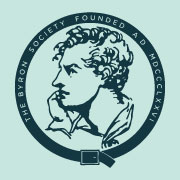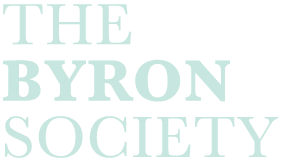“Byron: Wars and Words”
2021
Aristotle University of Thessaloniki
NEW DATES for the 46th International Byron Conference in Thessaloniki, Greece:
28th June – 4th July 2021
We are happy to announce the new dates for the 46th International Byron Conference which was postponed due to covid-19 concerns. The conference will coincide with the 200th Anniversary of the Greek War of Independence of 1821, a landmark event that will be celebrated throughout the country.
Please note that the Call for Papers has opened again. The new deadline for abstracts is 31 January 2021. The exact format of the conference will be decided in the next few months and relevant information will be posted on the conference website as we go forward.
Delegates who had their proposals accepted are kindly requested to confirm their intention to participate by 31 January 2021 to our dedicated email address: byronthess@gmail.com
We very much hope that you will join us for this rescheduled event!
The 2020 Conference of the International Association of Byron Societies will be held at Aristotle University of Thessaloniki from 29th June to 5th July. The 46th IBC will explore how war in all its meanings, symbolisms, and manifestations influenced Byron’s words and worlds, and shaped his poetic and political sensibility. Drawing on recent scholarship in Romantic studies, it will also explore Romantic authors’ preoccupations with war, and how these intersected with Byron’s.
Proposals are invited for the 2020 Conference of the International Association of Byron Societies, “Byron: Wars and Words”, to be held at Aristotle University of Thessaloniki from 29th June to 5th July. The aim of this conference is to look at how war in all its meanings, symbolisms, and manifestations influenced Byron’s words and worlds, and shaped his poetic and political sensibility. Drawing on recent scholarship in Romantic studies, it will also explore Romantic authors’ preoccupations with war, and how these intersected with Byron’s. How are the events of wars transformed into words, images and spectacle? Conversely, how do words become weapons and trigger literary, cultural, and political struggles? What kind of ideological conflicts, dilemmas, and anxieties does the print culture of the time embody when treating the issue of war? How does Romantic-period conflict extend our understanding of modern warfare?
The conference welcomes 20-minute proposals for papers on topics including, but not necessarily limited to:
- Byron as revolutionary fighter and/or critic of war
- Byron and Napoleon
- Byron and epic
- Warfare as inspiring force for poetic subjects, new genres, language forms and styles
- Romantic nationalism
- “Intellectual war”: newspapers, magazines, reviews and broadsides
- The representation of military action and violence in literature and art
- Famous critical wars that Byron’s words produced
- War and gender
- Revolution and knowledge production
- Science and war
- Media and military technologies
Academic Committee
- Roderick Beaton (King’s College London)
- Caroline Franklin (Swansea University)
- Alexander Grammatikos (Langara College, Canada)
- Jonathan Gross (DePaul University)
- Argyros I. Protopapas (National and Kapodistrian University of Athens)
- Maria Schoina (Aristotle University of Thessaloniki)

